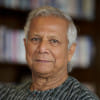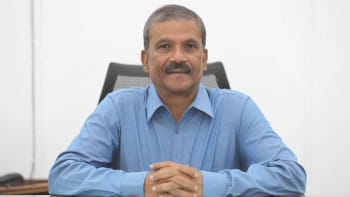Three Zeros for a Sustainable World
At their annual summit in Russia in July this year, BRICS (Brazil, Russia, India, China, South Africa) leaders will announce the world's newest multilateral development bank; New Development Bank (NDB), which will have US $100 billion as initial capital to fund infrastructure and sustainable development projects both in their own countries as well as elsewhere.
Obviously, the NDB should not become another World Bank to finance the same type of projects in the same countries, using the same tools and the same mindset. Its purpose should not be seen as a symbol of emerging countries' desire to show off their financial and political power. The reason for its creation must be very substantive.
The NDB should be based on entirely new objectives, to be carried out with new strategies. It would be easy for the NDB to fall into the same track as the World Bank since it is in the same business. But the NDB must resist this from day one.
I am proposing some objectives for the NDB which I feel are important and globally relevant. The objectives of the NDB should be achieving three zeros by 2050: zero poverty, zero unemployment, and zero net carbon emission. Each year they may publish reports on the progress of each country on these three fronts.
The NDB could achieve these goals using four basic strategies. The first strategy would be to unleash the creative power and commitment of the new generation of youth. If the BRICS can mobilise the power of the youth, it will become easier to achieve the goals.
The second strategy would be to focus on technological innovations to solve human problems. Technology today is under the command of money-makers and war-makers. Socially committed drivers must take charge of technology. They are invisible today. Combining the power of the youth with that of technology will create an unshakeable force.
This brings us to the third strategy, building social businesses to mobilise creative business power to solve long-standing complicated social, economic, and environmental problems. Social business is a new variety of business which delinks itself from any desire to make personal profit out these businesses. They are mission driven businesses. They are non-dividend companies exclusively devoted to solving human problems. I have been creating and promoting this type of business around the world with great results.
This is a business which aims at philanthropic objectives but is implemented through a business methodology that skips personal profit. Additional profits are ploughed back into the business to expand and improve it. This business is very suitable for innovating new technology and redirecting old technology to solve problems which always looked impossible.
The NDB can promote social business globally. It can be the centre-piece of its institutional structure and policy package. Conventional business cannot solve problems of poverty, unemployment, financial services to the poor, waste management, healthcare, old age, etc. State or private charity is not only unsustainable, it is also inefficient in achieving its goals. Social business is sustainable, efficient, replicable, and transferable.
Once the NDB creates a new window for financing and promoting social businesses, it will attract the young, old, men, women, individuals and organisations, with social business ideas. It can encourage each conventional business to undertake social businesses alongside their main business activities.
The NDB could create country-level social business funds as joint ventures with local partners. It could create provincial-level social business funds in which it holds a minor equity with majority equity coming from local investors.
The problem solving environment will be dramatically changed if the NDB takes these initiatives. Universities and business schools will start teaching social business courses when the NDB takes an active role in promoting this particular category of business.
Unemployment can be brought to zero with social business initiatives. Unemployment is a product of flawed interpretation of human beings in the theoretical framework of economics. Human beings are not job-seekers, they are entrepreneurs by birth. Entrepreneurship is in the DNA of human beings. They are go-getters and problem solvers. But economic theory assumed that human beings are basically workers; as soon as they are born they should start preparing for jobs for survival and success. This idea is firmly rooted in our education system which is engaged in the production of workers. The unemployment problem is built into the present system, and the present system will never be able to eliminate it. Social business can turn the unemployed into entrepreneurs. We are doing that in Bangladesh.
Ensuring financial services and healthcare to the poor and hard to reach people can be done through creating social businesses.
While the NDB will undertake many types of infrastructure projects, it should give serious consideration to the ownership and maintenance of the same. We have now examples of major infrastructure being owned by money-makers. In the old days, this was the exclusive preserve of governments. Apart from government and commercial ownership, there is also ownership by social businesses. From the perspective of its users, ownership by social businesses will be much more satisfying than the other two alternatives.
Finally, the fourth strategy should be to ensure human rights and good governance.
At the inception of the NDB, I find it important to draw its attention to the possibility of making an enormous breakthrough in creating a sustainable world by setting the right goals, creating the right structure, and laying down the appropriate strategies.
I wish the NDB a great success in redesigning the world to make it sustainable.
The writer is a Nobel Peace Prize-winning economist and banker.

 For all latest news, follow The Daily Star's Google News channel.
For all latest news, follow The Daily Star's Google News channel. 



Comments